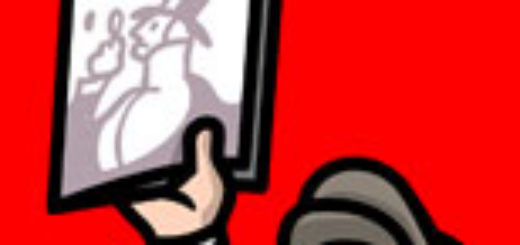 The world is facing a new food crisis as the worst US drought in more than 50 years pushes agricultural commodity prices to record highs. Corn and soyabean prices surged to record highs on Thursday, surpassing the peaks of the 2007-08 crisis that sparked food riots in more than 30 countries. Wheat prices are not yet at record levels but have rallied more than 50 per cent in five weeks, exceeding prices reached in the wake of Russia’s 2010 export ban, says The Financial Times.
The world is facing a new food crisis as the worst US drought in more than 50 years pushes agricultural commodity prices to record highs. Corn and soyabean prices surged to record highs on Thursday, surpassing the peaks of the 2007-08 crisis that sparked food riots in more than 30 countries. Wheat prices are not yet at record levels but have rallied more than 50 per cent in five weeks, exceeding prices reached in the wake of Russia’s 2010 export ban, says The Financial Times.
The London Stock Exchange Group is in talks with the owner of the Singapore exchange about a potential 7.2bn pound merger. The British bourse, which pulled out of a 4.2bn pound merger with the owner of the Toronto stock exchange last year, is understood to have held a series of informal conversations with Singapore Exchange, its Asian rival, about a formal tie-up. Although still in their preliminary stages, the talks are believed to have focused on the benefits of merging the two exchanges amid continued consolidation attempts in the sector. If the London-Singapore deal were to come to fruition, it is expected the combined exchange group would rank third in the world in terms of trades, behind NYSE Euronext and Nasdaq OMX, The Telegraph reports.
Philippe Moryoussef, the former Barclays trader identified as being at the heart of the interest rate fixing scandal, had bets in the order of €30bn resting on the rate of Euribor (the European equivalent of the UK’s Libor) and appears to have been a domineering character over dealers at other banks. The multi-millionaire was revealed yesterday as being the character named “Trader E” in the explosive Financial Services Authority report into the Libor fixing scandal, where he is repeatedly mentioned among those who fixed the price of Libor up or down in order to boost the profits on their trades. In one example from 2007, the report describes how Moryous-sef appeared to hatch a plan to fix the Euribor “cash” rate so a trade linked to its level on a set date would make a bigger profit, writes The Independent.
A peer who was suspended from the House of Lords over corruption allegations has resigned as chairman of Gulf Keystone, which explores for oil and gas in the Kurdish region of Iraq. Lord Truscott unexpectedly stepped down after a shareholder campaign. A resolution to re-elect him to the board was withdrawn at the last minute at the company’s annual meeting in Paris yesterday. In May 2009 Lord Truscott became the first peer since the 17th century to be suspended from the House of Lords, in response to a corruption investigation by The Sunday Times. He was accused of seeking payment of £72,000 to help two people posing as lobbyists to amend a government Bill, and video footage of the staged meeting was published. The Lords Privileges Committee concluded that he had broken rules on using his influence in Parliament in return for money, according to The Times.
Yields on Spanish five-year bonds jumped to a fresh crisis peak of 6.46% at a closely-watched auction as hopes fade for fresh stimulus from the European Central Bank and direct recapitalisation of Spanish banks by the EU bailout fund, the European Stability Mechanism (ESM). “Demand for Spanish paper is collapsing, even for shorter-dated debt which is very worrying and raises the spectre of Spain losing market access,” said Nicholas Spiro from Spiro Sovereign Strategy. Marchel Alexandrovich from Jefferies Fixed Income said the markets are already bracing for second bigger rescue of around €400bn. “A few more weeks like this and Madrid is going to decide to it has nothing more to lose and call for a full sovereign bail-out,” he said. “Then we will find out if there really is any money in the EU kitty, The Telegraph writes.
Microsoft suffered one of the biggest blows to its reputation last night as the software giant reported its first loss as a public company. The company founded by Bill Gates said that it had lost $492m (£313m) in the three months to the end of June after writing off $6.2bn from acquisitions made in an attempt to keep up with Google in the search engine market. While Microsoft was eating humble pie, Google was emphasising just how badly its rival had faltered as it reported an 11% rise in second-quarter profits to $2.7bn. Revenues rose by 35% to $12.2bn compared with the same quarter last year, including a $1.2bn contribution from its acquisition of Motorola Mobility. Microsoft’s results were affected by weak sales of personal computers after consumers and companies put off purchases because of the economic uncertainty. This dented revenues for the company’s core software range and the Windows division reported sales down 13% to $4.1bn, The Times explains.
More UK homeowners expect property prices to rise rather than fall in the coming year, two separate studies have found, despite house sales stuttering and the dour economic outlook. According to the latest quarterly Halifax Housing Market Confidence tracker, 34% of householders thought the average UK house price would rise over the next year, with 19% predicting a drop. In a separate property market sentiment report by property website Zoopla, 63% expected values to rise in the next six months, with 18% predicting falls in the same period, The Daily Mail reports.







